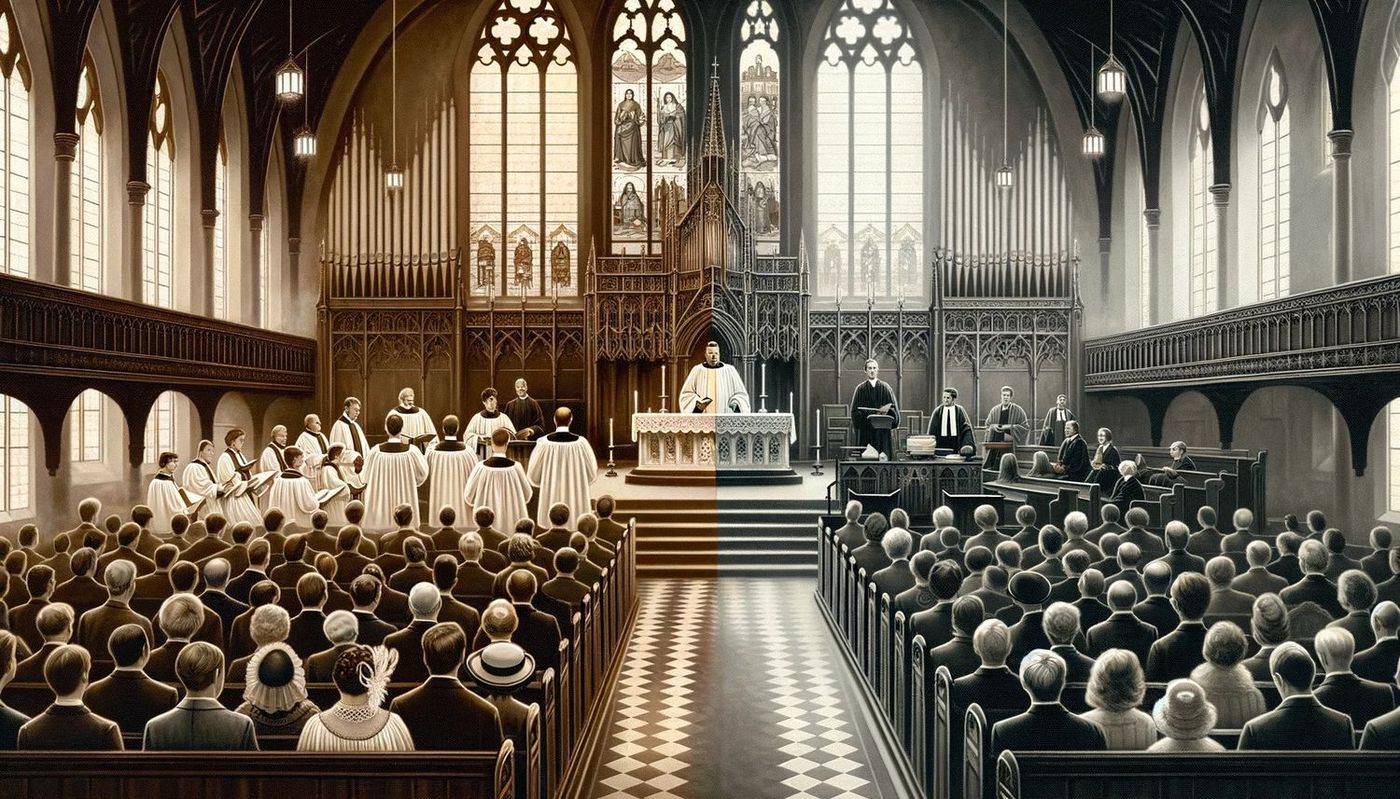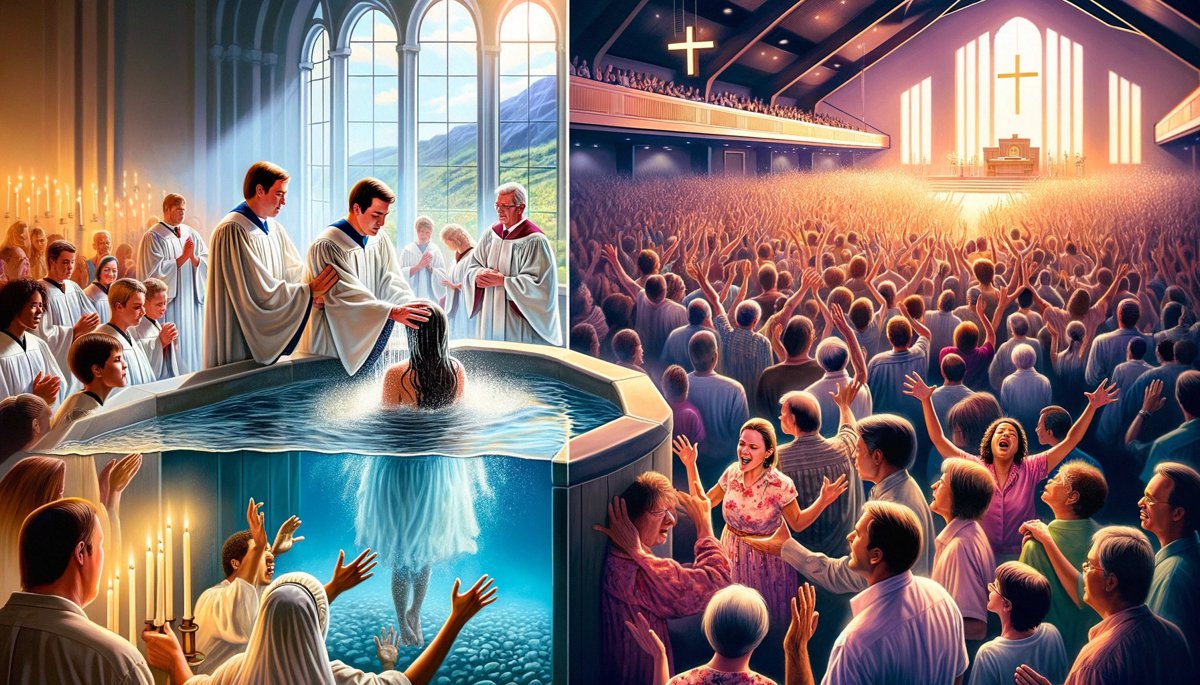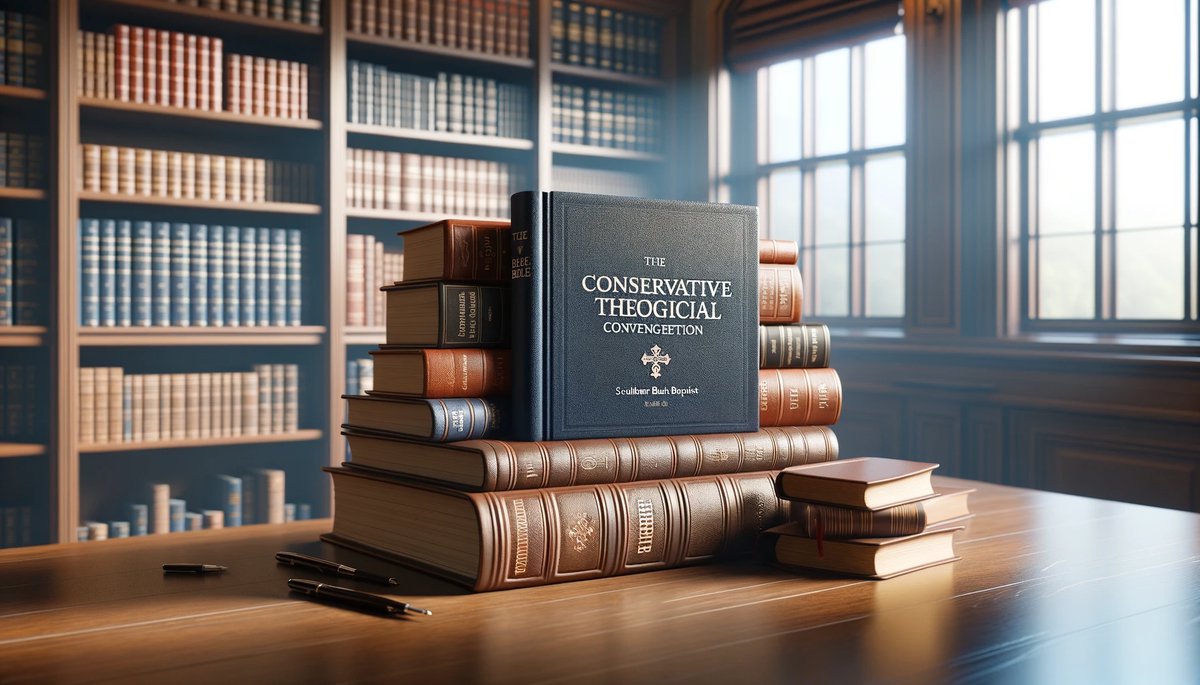Home>Theology and Spirituality>What Is The Difference Between Mormon And Baptist


Theology and Spirituality
What Is The Difference Between Mormon And Baptist
Published: February 21, 2024
Jason DeRose, Managing Editor at Christian.net, uses his expertise in religion and journalism to deepen understanding of faith's societal impacts. His editorial leadership, coupled with a strong academic background, enriches the platform’s diverse content, earning him recognition in both journalism and religious circles.
Discover the key distinctions between Mormon and Baptist beliefs in theology and spirituality. Explore the differences to gain a deeper understanding.
(Many of the links in this article redirect to a specific reviewed product. Your purchase of these products through affiliate links helps to generate commission for Christian.net, at no extra cost. Learn more)
Table of Contents
Introduction
When exploring the rich tapestry of religious beliefs and practices, it's fascinating to delve into the differences between the Mormon and Baptist faiths. Both of these Christian denominations have unique histories, doctrines, and traditions that distinguish them from one another. Understanding these distinctions can provide valuable insights into the diverse expressions of faith within the Christian tradition.
The Mormon faith, formally known as The Church of Jesus Christ of Latter-day Saints, traces its origins to the early 19th century in the United States. Founded by Joseph Smith, the religion's teachings are based on the Book of Mormon, which believers consider to be a companion to the Bible. In contrast, the Baptist tradition has a longer history, with roots extending back to the 17th century. Baptists emphasize the significance of believer's baptism and the autonomy of individual congregations.
As we embark on this exploration, it's important to approach these differences with an open mind and a spirit of curiosity. By gaining a deeper understanding of the distinct beliefs, worship practices, and organizational structures of these two faiths, we can cultivate a greater appreciation for the diverse ways in which individuals seek spiritual fulfillment and connection with the divine.
Beliefs and Doctrines
The beliefs and doctrines of the Mormon and Baptist faiths reflect their unique theological perspectives and interpretations of Christian teachings. Understanding these core tenets is essential for appreciating the distinct spiritual landscapes of these two denominations.
Mormon Beliefs and Doctrines
The Mormon faith, founded by Joseph Smith in the early 19th century, holds distinctive beliefs that set it apart from mainstream Christian denominations. Central to Mormon theology is the belief in modern-day revelation, which is considered an ongoing communication between God and his children. This belief led to the publication of additional scriptures, including the Book of Mormon, Doctrine and Covenants, and the Pearl of Great Price, which are considered alongside the Bible as sacred texts.
Mormons believe in the concept of eternal progression, asserting that humans have the potential to become like God through a process of spiritual growth and development. This belief in deification, or the potential to attain godhood, distinguishes Mormon theology from traditional Christian doctrines.
Furthermore, the Mormon faith emphasizes the importance of family and genealogy, teaching that familial relationships can extend beyond mortality and into the afterlife. This belief underpins the practice of proxy baptisms and other ordinances performed on behalf of deceased ancestors, with the aim of uniting families for eternity.
Baptist Beliefs and Doctrines
In contrast, Baptist beliefs and doctrines are rooted in the principles of individual autonomy and the authority of Scripture. Baptists uphold the belief in soul competency, affirming that individuals have the freedom and responsibility to make their own choices in matters of faith and morality. This autonomy extends to the practice of believer's baptism, which is a central sacrament in Baptist tradition and is reserved for those who can make a personal confession of faith.
Baptists adhere to the doctrine of salvation through faith in Jesus Christ alone, emphasizing the grace of God as the sole means of redemption. This belief in salvation by grace through faith is a fundamental cornerstone of Baptist theology and distinguishes it from other Christian traditions that may incorporate additional sacraments or rituals as part of the salvation process.
Additionally, the Baptist faith places a strong emphasis on the priesthood of all believers, affirming that every individual has direct access to God without the need for intercession by clergy or other religious authorities. This egalitarian approach to spiritual leadership underscores the Baptist commitment to congregational autonomy and the democratic governance of local churches.
In summary, the beliefs and doctrines of the Mormon and Baptist faiths reveal the diverse theological perspectives and interpretations of Christian teachings within the broader tapestry of Christian traditions. These foundational principles shape the spiritual identities of each denomination, guiding their worship practices, ethical frameworks, and communal dynamics.
Worship and Practices
Mormon Worship and Practices
Mormon worship and practices are characterized by a strong sense of community and a deep commitment to family-centered religious observance. Central to Mormon worship is the Sunday service, where congregants gather to participate in sacrament meetings, which include hymns, prayers, and the partaking of the sacrament, similar to the Eucharist in other Christian traditions. The focal point of these gatherings is the spiritual edification of members through the teaching of gospel principles and the sharing of personal testimonies.
In addition to regular Sunday worship, Mormons also participate in temple worship, which is distinct from their weekly gatherings. Temples are considered sacred spaces where special ordinances, such as eternal marriage ceremonies and proxy baptisms for the deceased, are performed. These ordinances are central to Mormon theology and are believed to have eternal significance for individuals and families.
Family plays a central role in Mormon worship and practices. Family home evening, a weekly gathering for spiritual instruction and bonding, is a cherished tradition among Mormons. This practice reinforces the importance of familial relationships and provides opportunities for parents to teach their children about the faith.
Baptist Worship and Practices
Baptist worship and practices are characterized by simplicity, heartfelt devotion, and a strong emphasis on the authority of Scripture. The focal point of Baptist worship is the Sunday service, where congregants gather for prayer, singing of hymns, and the preaching of sermons. Baptists place a significant emphasis on the proclamation of the Word, with sermons serving as a central component of their worship gatherings.
Believer's baptism, a distinctive practice in Baptist tradition, holds a central place in the worship and practices of Baptist congregations. This act symbolizes the individual's personal faith and commitment to Christ, and it is often conducted through full immersion in water, symbolizing spiritual rebirth and renewal.
Baptists also place a strong emphasis on congregational singing, with hymns and spiritual songs playing a vital role in their worship services. This participatory aspect of worship fosters a sense of community and shared devotion among congregants.
In summary, the worship and practices of the Mormon and Baptist faiths reflect their unique theological emphases and cultural expressions. Both traditions place a strong emphasis on communal worship, spiritual instruction, and the cultivation of faith within the context of their respective beliefs and doctrines. These worship practices serve as foundational elements that shape the spiritual identities and communal experiences of their adherents.
Leadership and Organization
Mormon Leadership and Organization
The leadership and organizational structure of the Mormon faith is characterized by a hierarchical system that emphasizes centralized authority and ecclesiastical governance. At the helm of the Church of Jesus Christ of Latter-day Saints is the First Presidency, comprised of the president and two counselors, who are regarded as prophets, seers, and revelators. This leadership body is responsible for guiding the overall direction of the church and providing spiritual leadership to its members.
Beneath the First Presidency are the Quorum of the Twelve Apostles, who are regarded as special witnesses of Jesus Christ and hold key responsibilities in guiding the global ministry of the church. Together with the First Presidency, the Quorum of the Twelve Apostles plays a pivotal role in shaping the doctrinal teachings and administrative decisions of the church.
The local congregations, known as wards and branches, are led by lay leaders who are called from within the congregation. These leaders serve in various capacities, including bishops who oversee individual congregations and stake presidents who preside over groups of congregations within a geographical area. This lay leadership model reflects the Mormon belief in the participation of members in the ecclesiastical governance of the church.
Baptist Leadership and Organization
In contrast to the hierarchical structure of the Mormon faith, the Baptist tradition is characterized by its emphasis on congregational autonomy and the priesthood of all believers. Each Baptist congregation operates independently and is governed by its members, with no overarching ecclesiastical authority dictating its affairs. This congregational polity allows for a high degree of local autonomy and decision-making within each church community.
Leadership within Baptist congregations typically includes the pastor, who is responsible for providing spiritual guidance, preaching sermons, and overseeing the pastoral care of the congregation. Unlike in hierarchical structures, the role of the pastor in Baptist churches is often seen as one of servant leadership, with a focus on equipping and empowering the congregation for ministry.
Baptists also place a strong emphasis on the role of deacons, who are responsible for various practical and administrative functions within the church, such as caring for the physical needs of members and assisting in the conduct of worship services. This shared leadership model reflects the Baptist commitment to the priesthood of all believers and the active participation of the congregation in the life of the church.
In summary, the leadership and organizational structures of the Mormon and Baptist faiths reflect their distinct approaches to ecclesiastical governance and the distribution of authority within their respective religious communities. These structures play a significant role in shaping the dynamics of leadership, decision-making, and communal participation within each tradition.
History and Origins
The history and origins of the Mormon and Baptist faiths provide valuable insights into the diverse trajectories of these Christian traditions. Understanding the historical contexts in which these denominations emerged is essential for appreciating the unique cultural, theological, and social factors that have shaped their identities.
The Mormon faith traces its origins to the early 19th century in the United States, during a period of religious fervor and social change. Founded by Joseph Smith, the religion's inception is marked by the account of his visionary experiences, including the visitation of God the Father and Jesus Christ. These divine manifestations led to the restoration of the gospel and the establishment of the Church of Jesus Christ of Latter-day Saints. Central to Mormon history is the publication of the Book of Mormon, which believers regard as a sacred record of ancient inhabitants of the Americas and a companion to the Bible. The early Mormon community faced persecution and hardship, eventually migrating westward to escape religious intolerance and establish a thriving settlement in present-day Utah. This historical journey has become a foundational narrative in Mormon identity, symbolizing resilience, faith, and the pursuit of religious freedom.
In contrast, the Baptist tradition has deeper historical roots, with origins dating back to the 17th century in Europe and the British colonies in North America. The Baptist movement emerged within the context of the Protestant Reformation, emphasizing the principles of believer's baptism and the autonomy of local congregations. Baptists played a significant role in advocating for religious liberty and the separation of church and state, contributing to the broader landscape of religious freedom in Western societies. The history of Baptists is marked by a commitment to individual conscience, the pursuit of religious liberty, and the diverse expressions of faith within a congregational framework.
The historical trajectories of the Mormon and Baptist faiths reflect the complex interplay of religious innovation, cultural dynamics, and social upheaval. These histories have shaped the beliefs, practices, and communal identities of these denominations, underscoring the rich tapestry of Christian traditions within the broader narrative of religious history.
The historical and cultural contexts in which these faiths emerged have left indelible imprints on their theological perspectives, worship practices, and communal ethos, contributing to the diverse mosaic of Christian expressions in the contemporary world.
Conclusion
In conclusion, the exploration of the differences between the Mormon and Baptist faiths reveals the rich diversity within the Christian tradition. From their distinct beliefs and doctrines to their unique worship practices and organizational structures, these denominations offer valuable insights into the multifaceted tapestry of religious expression.
The Mormon faith, with its emphasis on modern-day revelation, eternal progression, and family-centered theology, stands apart with its distinctive theological perspectives. The belief in additional scriptures and the practice of proxy ordinances for the deceased underscore the Mormon commitment to ongoing divine communication and the eternal significance of familial relationships.
On the other hand, the Baptist tradition, rooted in the principles of individual autonomy, believer's baptism, and congregational governance, reflects a strong emphasis on the authority of Scripture and the priesthood of all believers. The Baptist commitment to congregational autonomy and the democratic governance of local churches highlights the diversity of theological perspectives within the broader Christian landscape.
Furthermore, the historical trajectories of these denominations, from the early 19th-century origins of the Mormon faith to the deeper historical roots of the Baptist tradition within the Protestant Reformation, have contributed to the shaping of their unique identities and communal dynamics. These historical contexts have left indelible imprints on their theological perspectives, worship practices, and communal ethos, contributing to the diverse mosaic of Christian expressions in the contemporary world.
By gaining a deeper understanding of the distinct beliefs, worship practices, and organizational structures of the Mormon and Baptist faiths, we can cultivate a greater appreciation for the diverse ways in which individuals seek spiritual fulfillment and connection with the divine. The differences between these denominations serve as a testament to the richness of religious diversity and the multifaceted expressions of faith within the Christian tradition.
Ultimately, the exploration of these differences invites us to approach religious diversity with an open mind and a spirit of curiosity, fostering a deeper understanding of the diverse ways in which individuals seek spiritual fulfillment and connection with the divine. It is through this understanding that we can embrace the richness of religious plurality and cultivate a spirit of mutual respect and appreciation for the diverse paths that individuals tread in their quest for spiritual meaning and fulfillment.













